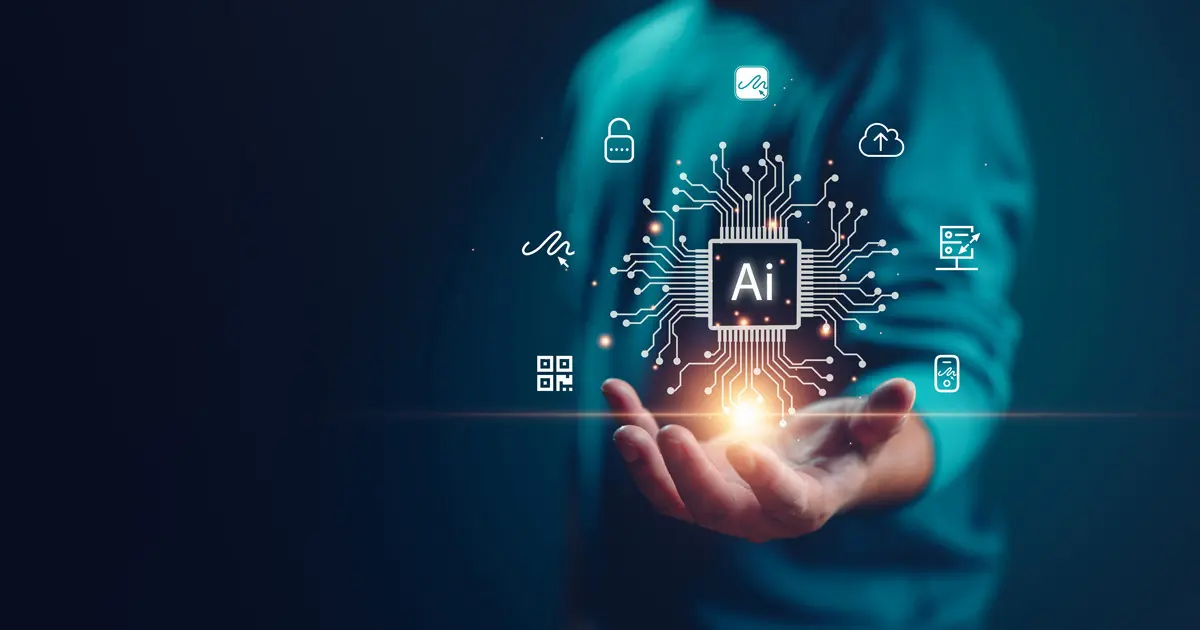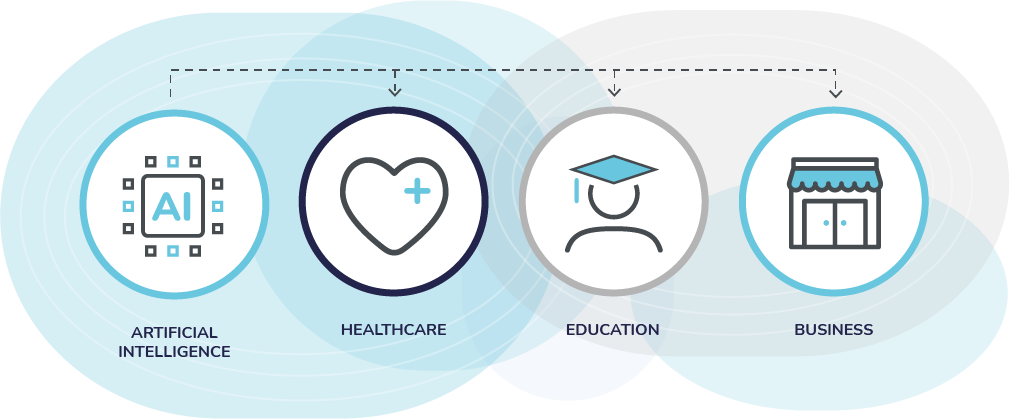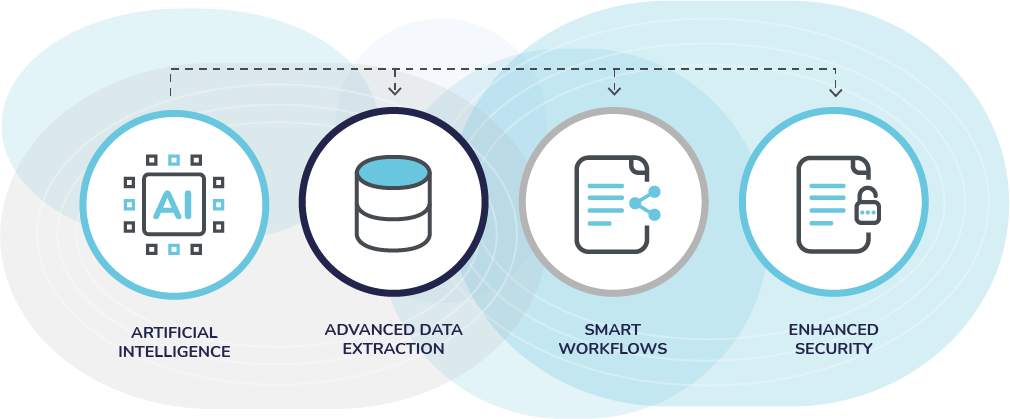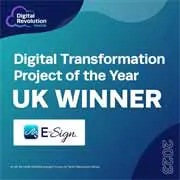Home | News & Insights |
Unlock the Potential: How will AI Impact eSignatures and Document Automation?
Luke Garrett
Head of Digital Transformation
PUBLISHED
30th January, 2025
The global digital signature market, valued at approximately 3.9 billion USD in 2022, is set to skyrocket to an impressive 43.14 billion by 2030. This explosive growth is driven by increased investments in electronic documents from both governments and businesses alike.
It’s easy to see why digital signatures have become a cornerstone for modern enterprises. They’ve revolutionized operations by cutting down on the costly, time-consuming paper-based processes and speeding up document completion times. The result? Significant benefits for businesses across every sector.
But there’s more to this evolution: artificial intelligence (AI) has emerged as a game-changer. With its rapid rise, AI is poised to take eSignatures and document automation to the next level, unlocking even greater efficiencies and possibilities for the future.
The Growth of eSignatures

Firstly, we must look at how digital signatures have become so integral in the day-to-day processes of modern businesses. The growth of the industry can be attributed to the increased demand for digital signature solutions and advancements in digital technologies. Moreover, regulatory compliance by government and legislation are benefitting stakeholders present in the digital signature ecosystem.
There is also no doubt that the COVID-19 pandemic highlighted a need for digital transformation across many industries, specifically healthcare. In the UK, the NHS had to adapt rapidly to meet these evolving needs, and digitalisation played a crucial role.
The pandemic became a catalyst for businesses and organisations across the world in realising the need to adopt digital technologies. The benefits from time and cost savings, environmental benefits to better collaboration and productivity show that e-signature technology is here to stay.
A further key driver of the growth of the market is the need for robust security measures to protect digital signatures from fraud, this has led to the development of advanced encryption techniques, identification methods and blockchain technology integration, ensuring the integrity and authenticity of electronically signed documents.
As more businesses and consumers begin to realise the benefits of electronic signatures such as faster transaction times, reduced operational costs and reduced environmental impact through adopting paperless processes, the eSignature market is expected to maintain its upward trajectory.
What is AI?
Before diving into how AI is set to revolutionise industries, let’s first break down what AI really means. At its core, AI is the ability of machines or computer systems to perform tasks that typically require human intelligence. This encompasses everything from learning and reasoning to problem-solving, perception, natural language understanding, and even speech recognition.
The ultimate goal of AI? To create systems that can autonomously perform complex tasks without the need for explicit programming. But to truly grasp how AI is reshaping the business world, we need to dive a little deeper.
Machine Learning
One of the most exciting and rapidly developing areas of AI is machine learning. It’s a powerful subset of AI that focuses on enabling computers to learn from data, improve over time, and make smarter decisions without being explicitly programmed. Machine learning techniques, like supervised learning and reinforcement learning, are already driving business innovation in ways we could only dream of a few years ago.
Deep Learning
Even more advanced than machine learning is deep learning—a specialised form of machine learning that uses neural networks to solve problems through nonlinear reasoning. Deep learning is the powerhouse behind cutting-edge applications like fraud detection, where it analyzes vast amounts of data and factors to spot potential threats. This is where AI begins to think in ways that were once the exclusive domain of human brains, and it’s revolutionising how businesses approach complex challenges.
With AI rapidly advancing, the possibilities for automation and efficiency are endless—and we’re just scratching the surface!
The Future of AI: Transforming Healthcare, Education, and Business
The future potential of Artificial Intelligence (AI) holds transformative possibilities across various areas, promising to reshape industries, societies, and the very fabric of human existence. As technological advancements continue to accelerate, AI is poised to play a pivotal role in shaping the world of tomorrow.

AI’s potential is nothing short of transformative, and its future promises to redefine industries. Here’s how:
Healthcare: Precision and Personalisation at Its Best
In healthcare, AI is paving the way for personalised medicine and enhanced diagnostics. Imagine a world where AI-powered algorithms analyse vast amounts of medical records, genomic data, and real-time patient information to not only deliver precise diagnoses but also recommend highly tailored treatment plans. This could revolutionise patient care by predicting health risks before they manifest, enabling proactive interventions.
Education: The Personalised Classroom of the Future
In education, AI is set to reshape the learning landscape. With adaptive learning tools and AI-driven tutoring systems, students can receive personalised learning experiences tailored to their unique needs and learning paces. These innovations have the power to foster more inclusive, equitable, and effective education environments, where every student’s potential can be fully realised.
AI is also poised to streamline administrative tasks, giving educators more time to focus on teaching and mentoring students. According to a study by McKinsey & Company, AI-powered educational tools could increase student learning and reduce teacher workload.
Business: Intelligent Decision-Making at Scale
In the business world, AI is set to become a game-changer, enabling intelligent decision-making and transforming the way companies operate. Advanced AI algorithms will analyse massive datasets, uncovering valuable insights into market trends, consumer behavior, and operational efficiencies. With tools like predictive analytics, businesses will be able to anticipate shifts in the market, manage risks, and stay ahead of competitors.
According to PwC, businesses that have adopted AI technologies are already seeing an improvement in productivity, with the potential for those figures to rise even higher in the coming years Source: PwC. AI-driven insights will enable organizations to make data-backed decisions faster and more accurately, driving future growth and profitability.
Ethics and Responsible AI Development
While the future of AI is incredibly exciting, it’s crucial to approach its development with responsibility. As AI continues to evolve, ethical considerations and regulations must play a central role in its deployment. Responsible AI development will ensure that these technologies benefit humanity while mitigating potential risks, such as bias, privacy concerns, and unintended consequences. Striking the right balance between innovation and ethical safeguards will be key to unlocking AI’s full potential in a way that benefits everyone.
As AI continues to advance, industries are poised for a revolution, but we must also navigate the complexities that come with it. With the right approach, AI will undoubtedly lead to groundbreaking changes that drive progress, improve lives, and reshape the future across healthcare, education, and business.
How will AI enhance eSignatures?
There is no doubt that AI promises plenty of exciting developments in business, so what does this mean for eSignatures? Let’s take a closer look at the areas mostly likely to benefit from AI.
Security Enhancements
- Signer verification: AI-powered signature verification algorithms can analyse and recognise the unique patterns and characteristics of an individual’s electronic signature. Continuous learning capabilities improve the accuracy of signature verification, making it more robust against forgery attempts.
- Anomaly detection: AI algorithms can be trained to detect anomalies or irregularities in the signing process, helping identify potentially fraudulent attempts. By establishing a baseline of normal signing behaviour, AI can flag deviations that may indicate unauthorised access or forged signatures.
- Biometric authentication: AI can enhance multifactor authentication systems for electronic signatures by incorporating additional layers of authentication, such as facial recognition, fingerprint scans, or voice recognition. Combining multiple authentication factors improves the overall security posture of electronic signature systems.
Accuracy Enhancements
- Automated document filling: Electronic documents can be pre-populated with signatures and initials already, but with the help of AI, less manual oversight is required, meaning that incomplete fields or errors can be highlighted before notifications are sent.
- Predictive analytics: AI has the ability to detect patterns and discrepancies across documents and can therefore offer insightful suggestions for users. Through continual learning, AI can analyse how contracts should be created and provide recommendations for templates and clauses.
- Data extraction and understanding: AI programs can read, digest, and understand the information provided in contracts and agreements much quicker and more accurately than humans can. This can significantly impact the overall document completion time for signatories.
AI and The Future of Document Automation
In the dynamic landscape of document automation, AI is a game-changer set to revolutionise the way we handle information. AI’s impact on document automation is nothing short of transformative, promising heightened efficiency, accuracy and innovation.

Advanced data extraction
One of the primary ways AI can reshape document automation is through advanced data extraction and analysis. Machine learning algorithms enable AI systems to intelligently sift through vast amounts of data, automatically extracting relevant information from documents. This not only accelerates document processing times but also reduces the likelihood of human errors.
Smart workflows
AI facilitates the creation of smart workflows in document automation. With natural language processing (NLP), AI understands and interprets the content of documents, allowing for more intuitive and context-aware automation. This means that documents can trigger specific actions or follow predefined workflows without manual intervention. It’s a leap towards a future where routine tasks are seamlessly handled by AI, freeing up human resources for more strategic and creative endeavours.
Enhanced security
AI-driven document automation also enhances document security. Machine learning algorithms can detect patterns indicative of fraudulent activities, ensuring a higher level of document authenticity. Encryption and biometric verification add an extra layer of security, making AI-infused document automation a robust solution for sensitive information handling.
In summary, it’s evident that the ongoing development and innovation of AI will further improve its reliability and accuracy. Therefore, it is imperative for modern businesses to embrace AI as a valuable asset, rather than a direct substitute for eSignatures and existing digital technologies. By creating a digital ecosystem that includes AI, businesses can enhance compliance, stay competitive and foster trust and confidence among employees, customers and stakeholders.
Ready to revolutionise your agreement processes?
As AI technology continues to evolve, adopting eSignatures is the smart first step to keeping your business ahead of the curve. Sign up today for a 14-day free trial and experience faster document turnaround times, hassle-free signing, and a streamlined process that saves you time and resources. Don’t miss out on staying competitive—get started now!
 Facebook
Facebook
 X (Twitter)
X (Twitter)
 LinkedIn
LinkedIn











